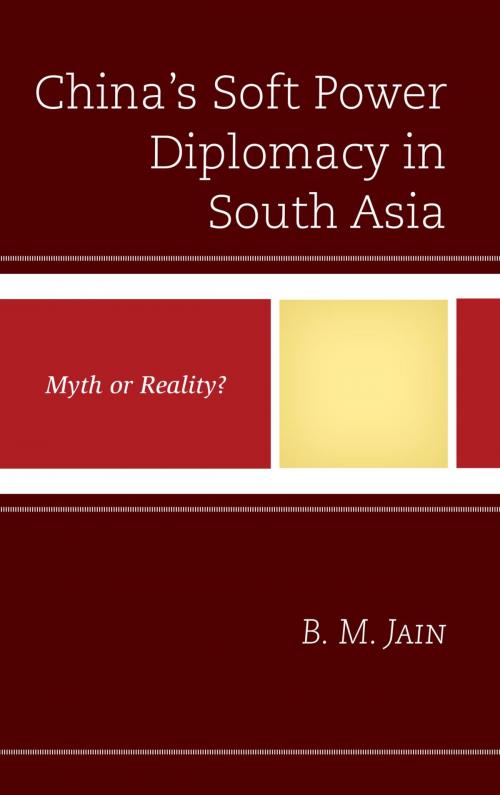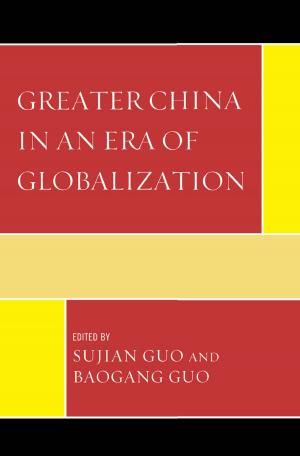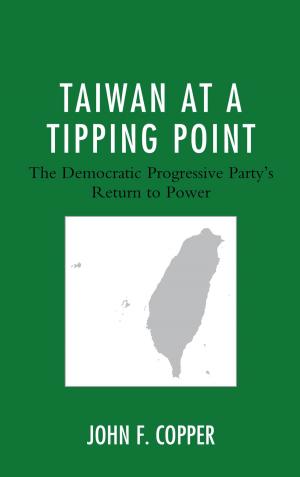China's Soft Power Diplomacy in South Asia
Myth or Reality?
Nonfiction, History, Asian, China, Social & Cultural Studies, Political Science, International, International Relations| Author: | B. M. Jain | ISBN: | 9780739193402 |
| Publisher: | Lexington Books | Publication: | June 6, 2017 |
| Imprint: | Lexington Books | Language: | English |
| Author: | B. M. Jain |
| ISBN: | 9780739193402 |
| Publisher: | Lexington Books |
| Publication: | June 6, 2017 |
| Imprint: | Lexington Books |
| Language: | English |
China's Soft Power Diplomacy: Myth or Reality? examines the Chinese version of soft power both in conceptual and operational terms, and explores its myriad implications for India, in particular, and South Asia in general. The book investigates how the institutionalization of cultural soft power would help China project its image as a benign and responsible stakeholder in order to reshape the current international system with its notion of “harmonious world order,” based on Chinese characteristics.
This book traces the origin of China’s engagement with South Asian states from historical, political, economic, and security perspectives in order to better understand the dynamics of its South Asia policy. It illuminates the core reasons to explain why China’s soft power initiatives in South Asia are least appealing and convincing to India while they are welcomed by smaller nations of the region. More pertinently, the book addresses complexities and nuances of China’s soft power instruments given the psycho-cultural and geopsychological peculiarities of the South Asian region. For this, it focuses on how the Sino-Pakistan axis constitutes a potential challenge to India’s leadership role and influence in South Asia.
China's Soft Power Diplomacy: Myth or Reality? examines the Chinese version of soft power both in conceptual and operational terms, and explores its myriad implications for India, in particular, and South Asia in general. The book investigates how the institutionalization of cultural soft power would help China project its image as a benign and responsible stakeholder in order to reshape the current international system with its notion of “harmonious world order,” based on Chinese characteristics.
This book traces the origin of China’s engagement with South Asian states from historical, political, economic, and security perspectives in order to better understand the dynamics of its South Asia policy. It illuminates the core reasons to explain why China’s soft power initiatives in South Asia are least appealing and convincing to India while they are welcomed by smaller nations of the region. More pertinently, the book addresses complexities and nuances of China’s soft power instruments given the psycho-cultural and geopsychological peculiarities of the South Asian region. For this, it focuses on how the Sino-Pakistan axis constitutes a potential challenge to India’s leadership role and influence in South Asia.















